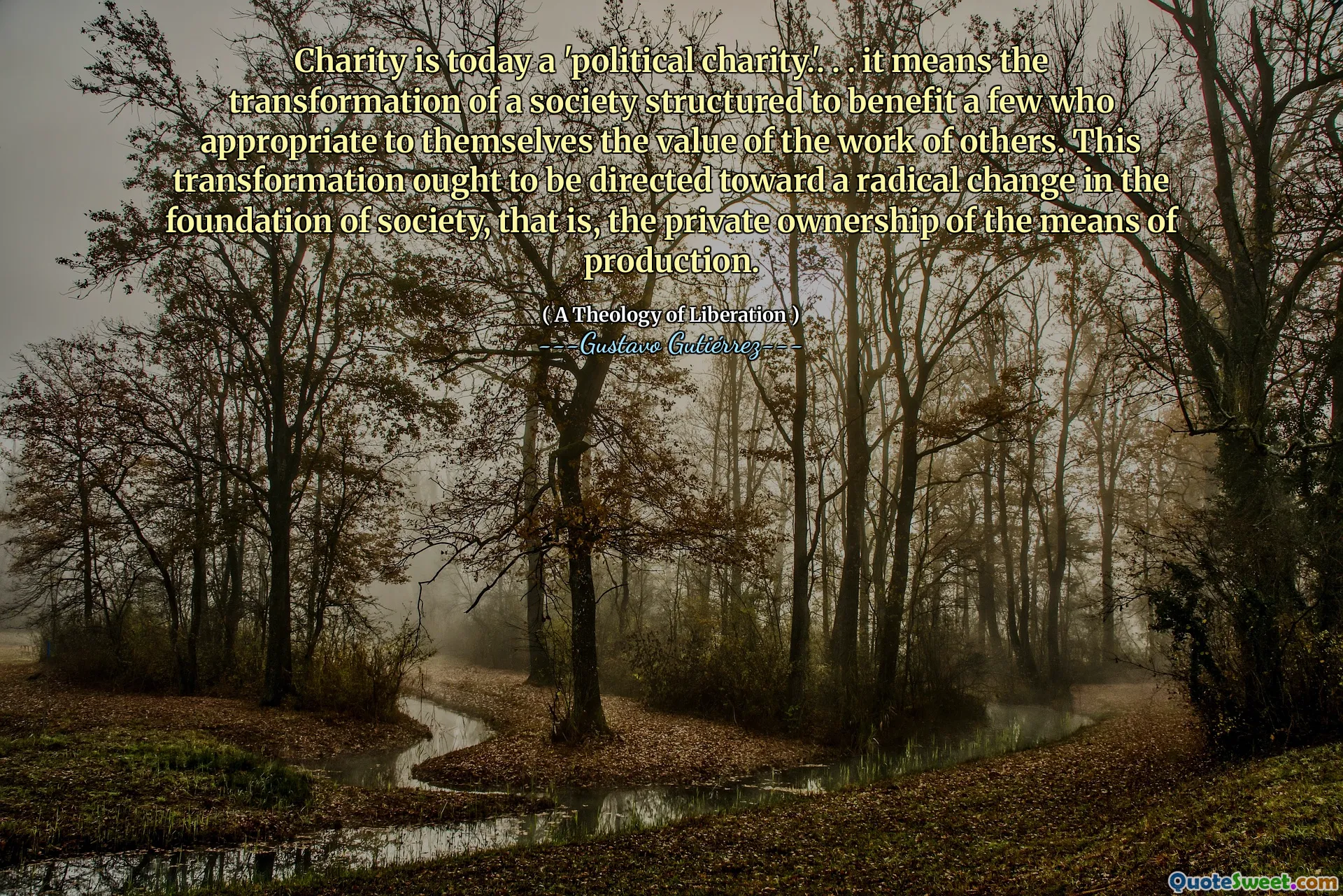
Charity is today a 'political charity.'. . . it means the transformation of a society structured to benefit a few who appropriate to themselves the value of the work of others. This transformation ought to be directed toward a radical change in the foundation of society, that is, the private ownership of the means of production.
This quote delves into the nuanced understanding of charity beyond mere acts of kindness. It suggests that contemporary charity tends to serve superficial alleviation rather than addressing systemic root causes. Systems that concentrate wealth and power within a small segment of society perpetuate inequality, where the fruits of collective labor are disproportionately siphoned by a privileged few. Such structures foster social injustice, leaving others in perpetual disadvantage. The quote advocates for a profound transformation—shifting from charity as a temporary fix to a structural overhaul of economic foundations. At its core, it calls for transcending charity as a tool for mere alleviation and embracing a radical change that dismantles private ownership of the means of production. This idea resonates with the belief that economic systems influence social relationships, political power, and overall justice within society. Real charity, in this context, becomes intertwined with social justice—aiming to alter the very fabric of economic systems that foster inequality. Recognizing charity as political emphasizes the necessity for confronting power structures and ownership patterns. The ultimate goal is to foster a society where resources and production are shared equitably, ensuring that the benefits of work are fairly distributed, and the root causes of poverty and suffering are addressed systematically rather than temporarily. This perspective challenges us to rethink the role of charity: should it serve only as Band-Aids, or be a catalyst for a more equitable societal restructuring?


